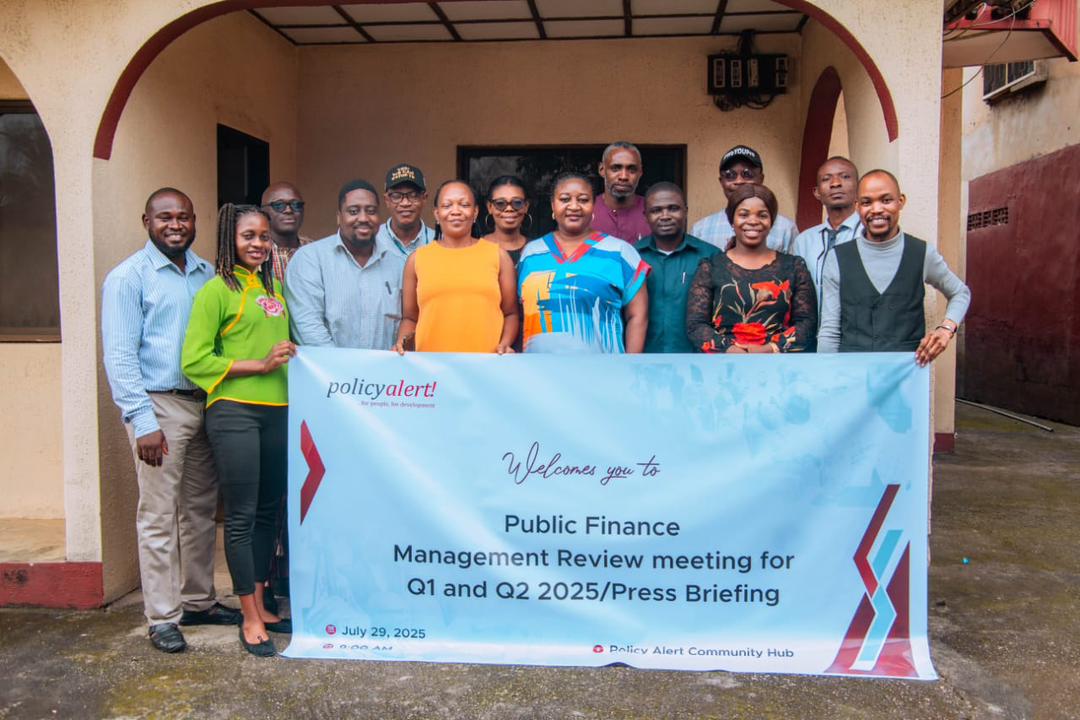CSOs Caution Akwa Ibom Government Over Breach of Fiscal Transparency Law
A non-governmental organization, Policy Alert, has criticized the Akwa Ibom State Government for its recent decline in fiscal transparency.
The NGO reminded the State Government that its recent actions breached the Fiscal Responsibility Law, which mandates full, timely, and wide disclosure of public finances.
Speaking at the Public Finance Management Review meeting for Q1 and Q2 2025/Press Briefing in Uyo, Tijah Bolton-Akpan, Executive Director, Policy Alert noted that this
reduction in transparency marks a significant departure from previous standards and will limit the ability of civil society, media, and stakeholders to scrutinize fiscal activities in the state.
Bolton-Akpan regretted that the state has reduced its Budget Implementation Report to a mere 3-page summary for the first and second quarters of 2025.
“For Q1 and Q2 2025, the State has reduced its Budget Implementation Report to a 3-page summary instead of the usual comprehensive reports (averaging 46-pages) in preceding years,”
“The current limited reporting falls short of these legal requirements, risking non-compliance and undermining public trust,” the report stated.
The NGO noted that Akwa Ibom State has made steady progress in fiscal transparency and accountability over the years, including online publication of annual budgets and budget implementation reports. However, the recent rollback in financial transparency is against these gains.
According to the report, key gaps in the current public finance management cycle include lack of detailed breakdown of revenue by Administrative Classification and lack of data on Revenue Sources.
To restore and strengthen financial transparency, the CSOs called on the state government to reinstate comprehensive quarterly and annual Budget Implementation Reports and align with PFM-aligned legal frameworks.
The CSOs also called on the state government to improve data accessibility by making financial reports available online in user-friendly formats and engaging civil society and media in data interpretation. “Government officials should publicly commit to transparency, and civil society must hold government accountable through advocacy and monitoring,” the report emphasized.
The coalition of Civil Society Organizations which took turns to make inputs at the meeting expressed concern that the Akwa Ibom State’s lack of fiscal transparency is particularly concerning given that it is one of only a few states in Nigeria that has not published detailed capital expenditure reports since Q1 2025. Adding that states publish reports exceeding 60 pages, including project-level details in key sectors like Education and Health.
